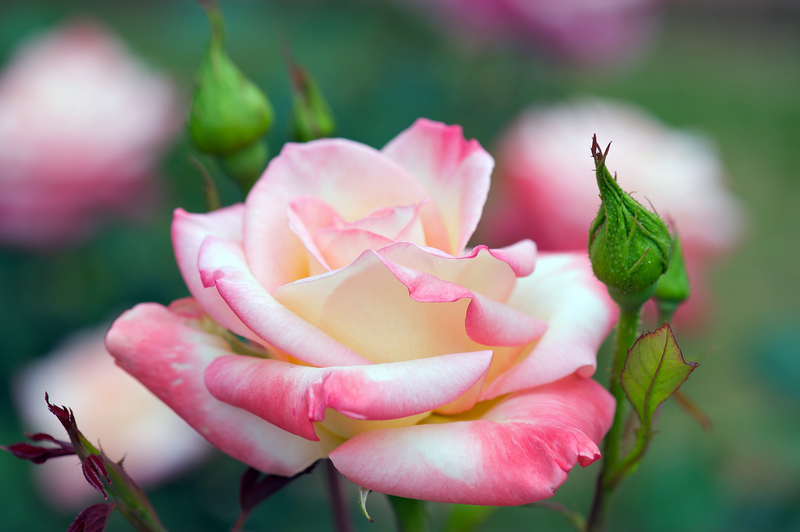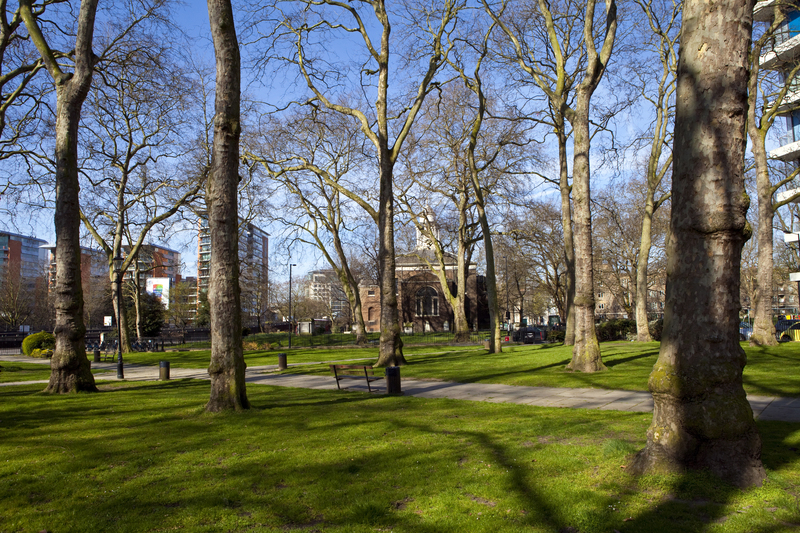Discover 9 Essential Tips to Kickstart Your Gardening Journey
Posted on 06/06/2025
Discover 9 Essential Tips to Kickstart Your Gardening Journey
Starting your own garden can be a rewarding and transformative experience. Whether you're dreaming of growing your own vegetables, cultivating vibrant flowers, or simply adding greenery to your living space, gardening is an excellent way to enhance your environment and well-being. If you are feeling overwhelmed about where to begin, don't worry! In this comprehensive guide, you'll discover 9 essential tips to kickstart your gardening journey. Read on to unlock the secrets of successful, joyful gardening.
Why Begin Your Gardening Adventure?
Embarking on a gardening journey is more than just a hobby--it's a way to connect with nature, beautify your surroundings, and even grow your own food. Gardens create sanctuaries for mindfulness, encourage sustainability, and give you a sense of achievement as you nurture plants from seed to bloom. Let's dive into the must-know tips for beginner gardeners looking to start strong.

1. Assess Your Space and Sunlight
Before rushing out to buy plants or seeds, take a good look at your available gardening space. Is it a spacious backyard, a small balcony, or maybe just a windowsill? The amount of sunlight your chosen area receives daily is one of the most critical factors for your gardening success. Most vegetables and flowers need at least six hours of sunlight per day. Observe your space at different times to determine sunlight patterns and identify shaded areas.
Key Questions to Ask:
- How much direct sunlight does the area receive?
- Is the location exposed to strong winds or protected?
- Is the soil rocky, sandy, or does it have existing grass/plants?
Tip: Some plants, such as leafy greens and certain herbs, will thrive even with partial sunlight--perfect for shadier spots.
2. Choose Easy-to-Grow Plants
If you're new to gardening, select plants that are known for being resilient and easy to care for. Beginner gardeners will find more success with varieties that require less maintenance. Vegetables like lettuce, tomatoes, radishes, beans, and carrots or flowers such as marigolds, zinnias, and sunflowers are excellent choices to start your gardening journey.
Start with:
- Herbs: Basil, mint, chives
- Vegetables: Salad greens, radishes, beans
- Flowers: Marigolds, cosmos, nasturtiums
Growing these plants will help boost your confidence and set a strong foundation for future gardening ventures.
3. Know Your Soil and Improve It
Healthy soil is the key to a healthy garden. Soil quality impacts drainage, nutrient levels, and root development. Start by analyzing your soil--dig a little and see if it's sandy, clay-like, or loamy. You can also purchase a simple soil test kit to understand its composition and pH level.
How to Enrich Your Soil:
- Add compost: Organic matter like food scraps or leaf mulch improves texture and fertility.
- Use mulch: Retains moisture, regulates temperature, and prevents weed growth.
- Amend as needed: Add sand to loosen clay or compost to enrich sandy soils.
Remember: Great gardens begin with great soil--invest time in nurturing the ground you'll be growing on!
4. Water Wisely
Proper watering habits are crucial for plant growth, and overwatering is a common mistake for beginners. The best time to water is early in the morning or late in the afternoon, which reduces evaporation. Most plants prefer deep, infrequent watering over light, daily sprinkles.
Watering Tips:
- Use a watering can for precision. Avoid wetting the leaves excessively to prevent diseases.
- Mulch your garden beds to help retain soil moisture.
- Check soil moisture with your finger before adding water--if the top inch is dry, it's time to water.
Automatic timers or drip irrigation systems can help regulate watering, especially if you have a busy schedule.
5. Invest in Quality Tools
Having the right gardening tools can transform your experience from frustrating to fun. For novice gardeners, a few essential tools will suffice. Good tools last longer, save you effort, and promote better plant care.
Must-Have Tools to Kick Off Your Gardening Journey:
- Hand trowel and fork for transplanting and digging
- Pruning shears for trimming and harvesting
- Watering can or hose with adjustable nozzle
- Gardening gloves to protect your hands
- Sturdy spade and rake for larger beds
Maintain your tools by cleaning and storing them properly after each use to extend their lifespan.
6. Start Small and Scale Up
The biggest mistake new gardeners make is going too big, too soon. It's essential to start with a manageable-sized garden. Even a few pots or a single garden bed can offer plenty of learning and satisfaction. As you build confidence and skill, gradually expand your gardening space or try more challenging plants.
Benefits of Starting Small:
- Lower upfront costs and less maintenance
- Easier to manage watering and weeding
- Quicker to adjust and learn as you go
Tip: Container gardening or raised beds are ideal for beginners and perfect for urban spaces.
7. Keep a Garden Journal
One of the
What to Record:
- Germination and blooming dates
- Plant varieties and placement
- Weather conditions and watering schedule
- Any pest or disease outbreaks and remedies used
Even if you're not a natural note-taker, snapping photos and noting quick observations can go a long way toward improving your gardening skills.
8. Learn to Identify Pests and Diseases
Every garden faces challenges from insects, animals, and plant diseases. Early recognition is the best defense. Learn to spot the signs of common issues such as aphids, powdery mildew, or slugs. Integrated pest management encourages using natural enemies, barriers, or organic treatments rather than harsh chemicals.
Eco-Friendly Pest Management Tips:
- Encourage beneficial insects like ladybugs and lacewings
- Use companion planting (e.g., planting marigolds with tomatoes)
- Remove pests by hand or use organic sprays if necessary
Healthy, well-tended plants are naturally more resistant to pests and disease, so keeping up with regular care is your garden's best shield.
9. Embrace Patience and the Learning Process
Gardening is an ongoing journey of learning and discovery. Not every plant will flourish, and setbacks are part of the process. Patience and observation are your best tools. Each season brings new opportunities and insights. Don't be afraid to experiment with different plants, layouts, or techniques until you find what works for you.
Tips for Keeping Your Gardening Enthusiasm Alive:
- Connect with local gardening groups for support and inspiration
- Visit public gardens or nurseries for new ideas
- Take time to enjoy the process and celebrate every success, big or small
Remember: Your garden reflects your personal growth as well as the plants themselves. Enjoy every stage of your gardening adventure!

Additional Resources and Inspiration
As you begin to kickstart your gardening journey, you might want to dive deeper into specific areas. Here are some recommended resources:
- Books: "The Garden Primer" by Barbara Damrosch, "All New Square Foot Gardening" by Mel Bartholomew
- Websites: Farmer's Almanac Gardening, Royal Horticultural Society
- Apps: Gardenize, Planter, or iNaturalist
Local community gardens and nurseries can also offer invaluable advice suited to your region and climate.
Final Thoughts: Let Your Gardening Journey Bloom
With these 9 essential tips in hand, you're well-equipped to transform your space and cultivate your green thumb. Discovering the joy of gardening starts with a single step, whether that's planting a seed or just observing the changing seasons in your yard. The journey might have a few bumps, but the rewards--fresh produce, color, fragrance, and peace--are well worth your effort.
So what are you waiting for? Grab your tools, choose your plants, and embark on your new gardening adventure! Happy gardening!
Latest Posts
Transforming Organic Waste into Soil Fertility
Beginner's Guide to Thriving Herb Gardens
Designing a Magical Garden for Young Explorers

